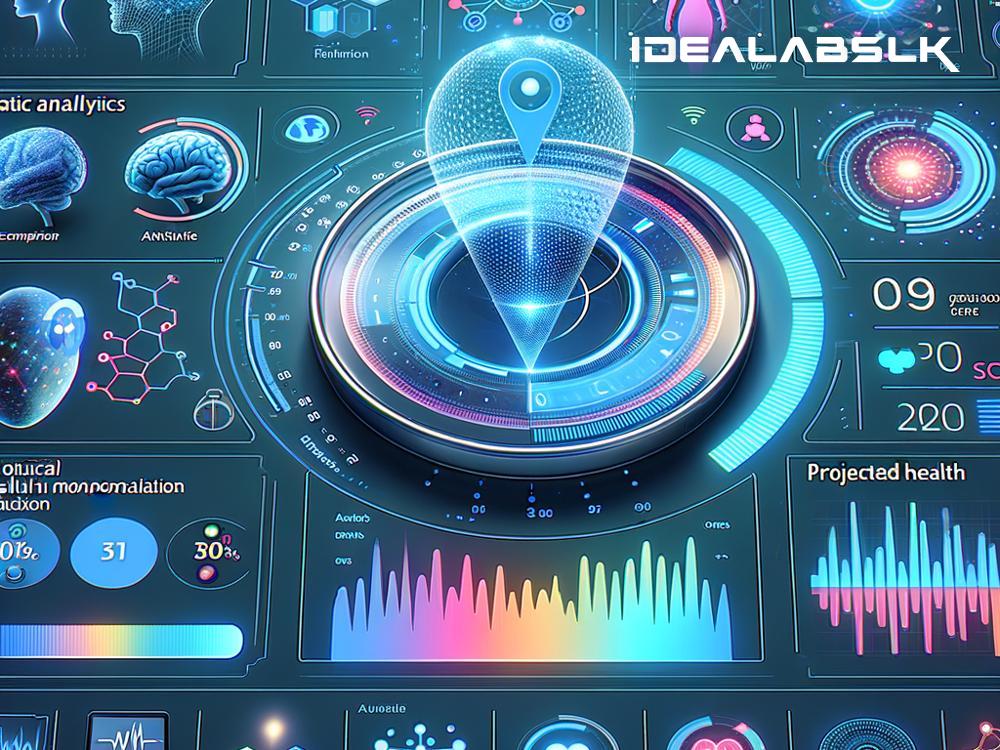The Future of Predictive AI in Digital Health Monitoring
In a world where technology continuously reshapes our lives, predictive AI (Artificial Intelligence) emerges as a beacon of hope, especially in the realm of digital health monitoring. Gone are the days when we relied solely on traditional healthcare methods. Today, with the advent of wearable devices and health monitoring apps, we're entering a new era where staying ahead of potential health issues is not just a possibility but a reality. So, what exactly is predictive AI, and how is it poised to transform the digital health monitoring scene? Let's dive in.
Understanding Predictive AI
Predictive AI refers to the use of artificial intelligence technologies, including machine learning and data analytics, to predict future outcomes based on historical and real-time data. In healthcare, this means leveraging the vast amounts of data collected from medical records, wearable devices, and other sources to anticipate health issues even before they manifest.
Why Predictive AI?
The rationale behind predictive AI in healthcare is straightforward: prevention is better than cure. By predicting health issues early, we can potentially prevent them or mitigate their impact, leading to better health outcomes, reduced healthcare costs, and a significant enhancement in the quality of life.
How Predictive AI is Shaping Digital Health Monitoring
The integration of predictive AI into digital health monitoring is revolutionizing patient care in several ways:
1. Personalized Healthcare Recommendations
One of the most significant benefits of predictive AI is its ability to tailor healthcare recommendations to individual needs. By analyzing a person's health data over time, AI can identify patterns and risks unique to them and provide personalized advice on diet, exercise, and lifestyle changes.
2. Early Disease Detection
Predictive AI excels in detecting diseases before they become apparent. Conditions such as heart disease, diabetes, and certain types of cancer can be identified earlier, offering a window for interventions that could dramatically alter the disease's course or prevent it altogether.
3. Remote Patient Monitoring
For patients with chronic conditions, continuous monitoring is crucial. Predictive AI algorithms can analyze data from wearable devices in real-time to alert both patients and healthcare providers about potential issues, facilitating timely interventions and reducing the need for hospital visits.
4. Enhancing Mental Health Support
Predictive AI also holds promise for mental health. By monitoring patterns in a person's online activity, sleep, and exercise, AI can detect signs of stress, depression, and anxiety, prompting early support and interventions.
The Challenges Ahead
While the potential of predictive AI in digital health monitoring is immense, there are challenges to be tackled. Data privacy and security are paramount, as healthcare data is sensitive and personal. There's also the need for robust AI models that can accurately predict health outcomes without bias. Additionally, the adoption of predictive AI requires a shift in mindset from reactive to preventive healthcare, both from healthcare providers and patients.
Looking Forward: The Horizon of Possibility
The future of predictive AI in digital health monitoring is not just about forecasting diseases; it's about creating a more proactive, personalized, and preventive healthcare model. As we continue to refine AI technologies and algorithms, the day is not far when wearable devices could act as personal health guardians, continuously monitoring and offering real-time health advice.
For patients with chronic conditions, predictive AI can transform their quality of life, offering them more control over their health. Similarly, for healthcare systems strained by rising costs and an aging population, predictive AI offers a beacon of efficiency and effectiveness.
Final Thoughts
As we stand on the cusp of a healthcare revolution powered by predictive AI, it's clear that the path forward is both exciting and challenging. The blend of technology and healthcare promises a future where disease prevention is personalized, precise, and proactive. However, realizing this future requires addressing the ethical, technical, and implementation challenges head-on.
In essence, predictive AI in digital health monitoring is not just a technological innovation; it's a new paradigm in healthcare. As we embrace this future, we must navigate it thoughtfully, ensuring that it serves to enhance human health and well-being, making healthcare not just reactive, but predictive, personalized, and preventative. The journey ahead is promising, and it's one we must undertake with optimism, caution, and a commitment to the betterment of global health outcomes.

